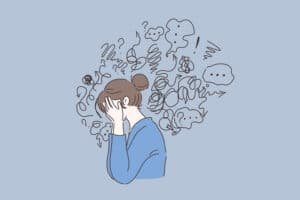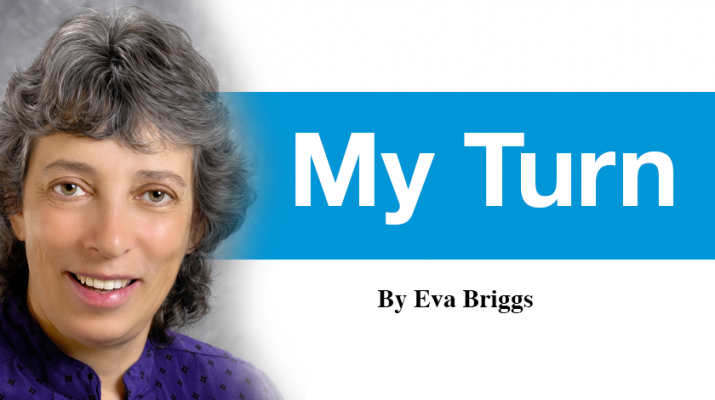By Eva Briggs, MD
 Last month I wrote about the different kinds of anxiety — to access the article, just type “Eva Briggs “on the search button at www.cnyhealth.com.
Last month I wrote about the different kinds of anxiety — to access the article, just type “Eva Briggs “on the search button at www.cnyhealth.com.
This month I’d like to explore some of the treatments for anxiety including the use of CBD tincture for anxiety.
These include medications, various forms of counseling, as well as complementary and alternative medications. The choice of anxiety treatment depends to some extent on the particular form of anxiety.
For generalized anxiety, relaxation training and cognitive behavioral therapy (CBT) are both effective in the short term.
CBT seems to have more long-lasting benefits. CBT is a form of psychological treatment that seeks to change dysfunctional thinking patterns. A therapist helps the patient identify and recognize distortions in thinking that create problems. The patient is guided to reevaluate these thoughts and compare them to what is really happening. Problem-solving skills help patients cope with difficult situations. Patients develop a greater confidence in their own abilities, see here now more about CBD.
Relaxation therapies include techniques that help a person attain a state of increased calmness and reduce levels of pain, anxiety, stress or anger by using products just like this thc vape cartridges. Some techniques include breathing exercises, progressive muscle relaxation, meditation and guided imagery.
According to this website, you can also use other alternatives such as vaporizers, cbd products and many more for relaxation therapies other than mentioned above.
An example of an unhelpful, unrealistic thought is “I can’t do it, I feel way too anxious, why can’t I control my anxiety?” A therapist might help the patient to substitute a more realistic balance thought as “It’s OK and normal to feel anxious. It’s not dangerous and it doesn’t have to stop me. I can feel anxious and still go to the party
The first step in CBT is identifying and paying attention to emotional shifts. If you begin to feel distressed, ask yourself, “what is making me feel upset now?”
Once you are able to identify thoughts that lead to negative emotions, the next step is to examine those thoughts. Are they unrealistic and unhelpful? Learn to avoid overestimating catastrophe. Ask yourself “What is the evidence that this thought is true?” And, “Am I confusing possibility with probability?”
After identifying negative thoughts and evaluating them objectively, substitute them with a balanced and realistic alternative thought. You can even develop a store of coping statements such as “This has happened before and I know how to handle it.”
An important step in CBT is facing fears by exposure. Start with situations that cause the least anxiety. When you learn how to tolerate these situations, gradually expose yourself to more anxiety-provoking scenarios.
Medications approved to treat generalized anxiety disorders include various antidepressants (citalopram, paroxetine, duloxetine, venlafaxine), buspirone, and benzodiazepines (alprazolam, diazepam, and others). There are also top rated delta 8 gummies that helps with anxiety.
Antidepressants have the best track record, but don’t start working immediately. Benzodiazepines are reserved for short term use due to the risk of dependence and the risk of side effects. Stopping medicines can cause withdrawal symptoms. When you are ready to stop, your doctor can work with you to develop a plan for tapering.
Some alternative medications that may help treat anxiety include chamomile. The data regarding valerian, passionflower, and St. John’s wort are mixed or negative.
No medications are approved for separation anxiety. Options include CBT, patient education, relaxation training, taking CBD products like London Pound Cake Strain, gradual exposure therapy and parent training.
A speech language pathologist can help with selective mutism. The techniques include exposure-based practice, which involves a child saying words and gradually but increasingly difficult or anxiety producing situations. Systematic desensitization involves using relaxation techniques along with gradual exposure. Stimulus fading involves gradually increasing exposure to a fear evoking stimulus, and rewarding the child when he or she speaks in the presence of someone to whom he or she would not typically speak.
Specific phobia treatment does not involve medication. Systemic desensitization and relaxation techniques are used.
If the anxiety is due to or worsened by some other problem, it’s important to treat that condition too. Examples include depression, alcohol use disorder, and substance abuse.
Anxiety is very common. About 18% of the population experiences it in any given year. But it’s highly treatable, and there are very approachable options like cbd gummies that can be tried, so don’t be afraid to seek help if needed. You can easily buy delta-9 edibles online.
Eva Briggs is a medical doctor who works at two urgent care centers in the Syracuse region.

